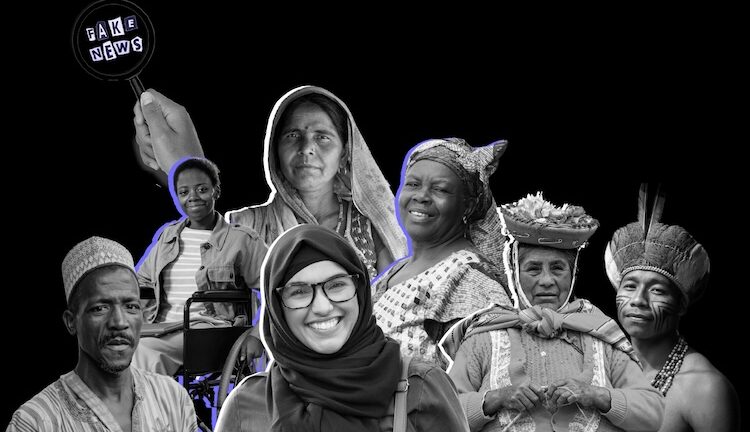By Michael Jarvis*
WASHINGTON DC | 20 June 2025 (IDN) — Fiscal justice is often treated as a technical topic, the domain of economists and policymakers. But at its core, it’s about fairness. For example, it’s about how public money is raised and spent, and who gets a say in those decisions.
It also means creating tax and spending systems that work for everyone, especially those who have been historically excluded. It means that public resources are channelled to national development priorities, such as early childhood education, health, or environmental protection.
Around the world, Civil Society Organisations (CSOs) are helping to make this idea a reality: challenging regressive tax policies, demanding transparency in public budgets, and ensuring that local voices inform national priorities.
We’ve spent years learning from these organisations. In doing so, we’ve seen what drives meaningful change. Here are some of the lessons not just for funders and advocates but for anyone seeking to build more inclusive and equitable systems.
Listen (and invest in) those closest to the problem
The people most affected by fiscal policy decisions often have the most precise understanding of what’s working and what isn’t. CSOs working at the local and regional levels are essential in identifying unjust taxes, broken budget processes, and areas where public services fall short. More importantly, they’re driving solutions that reflect the priorities of their communities.
Take, for example, Uganda’s Civil Society Budget Advocacy Group. When the government introduced a steep tax on mobile money transfers, a measure that disproportionately burdened lower-income populations, the organization responded with evidence-based analysis and public outreach. Their efforts led to a reduction in the tax, showing that policy can be shifted when it reflects the concerns of those most affected. In South Africa, advocates in informal settlements are using budget data to push for improved sanitation services. In Kenya, civil society leaders have turned to the courts to challenge the repayment of public debt that was incurred without transparency or tangible development benefit.
Elsewhere, civil society groups have worked to end preferential tax treatment for the wealthy and promote health-oriented fiscal policies. In the Philippines and Mexico, public pressure has led to the elimination of tax amnesties for politically connected actors and supported the adoption of taxes that fund public health services.
In Latin America, the #LifeOverDebt campaign highlights how issues of debt sustainability intersect with gender, social justice, and long-term well-being.
Take a long-term view
Lasting change in fiscal governance rarely happens quickly. It requires consistent engagement, coalition-building, and the flexibility to adapt over time. The CSOs we work with are deeply rooted in their communities and often spend years monitoring revenues and spending, educating citizens, and advocating for reform.
This long-term commitment has a real impact. It builds trust between ordinary people, government and public institutions, strengthens civic engagement, and contributes to a more resilient public finance system. For example, BudgIT has helped make complex fiscal data understandable for local people across Nigeria, encouraging them to speak up on how funds are being used and have the satisfaction of seeing their taxes support better services.
For funders, this means moving beyond short grant cycles and investing in the institutional strength of organisations that are doing the slow, steady work of reform. Flexibility and patience are critical, and so is recognising that the results may be cumulative rather than immediate.
Share learnings to strengthen the field
Progress in fiscal justice is often hard-won, and the challenges are complex. That’s why sharing strategies, tools, and lessons is so valuable. Feedback from grantees of TAI members consistently highlights how much they value investments in peer-to-peer learning, as well as spaces to learn alongside funders.
In this spirit, the Trust, Accountability, and Inclusion (TAI) Collaborative recently launched Fiscal Space, an online platform that documents approaches to building fairer fiscal systems and provides a space for candid reflection.
Fiscal Space is a resource for funders and anyone looking to better understand why fiscal issues matter, what works and what doesn’t in advancing fiscal justice. It draws on lived experiences, field-tested methods, and the challenges CSOs encounter every day. By sharing openly, we can avoid duplication, build on effective approaches, and expand what’s possible.
Looking ahead
As governments around the world face shrinking aid, rising debt, and tighter budgets, the risks of regressive fiscal responses are growing. Without a strong civic voice, the burden often falls on those least able to bear it, through increased consumption taxes, reduced public services, or yet more hidden debt.
But there’s also an opportunity. By listening to local leaders, committing to long-term partnerships, and creating space for shared learning, we can help build fairer fiscal systems that genuinely reflect the needs and rights of all people. It will free up more resources for healthier, better-educated, more environmentally resilient resources.
Fiscal justice isn’t abstract. It’s about the daily realities of individuals and families and the systems that either support or sideline them.
*Michael Jarvis is the Executive Director of the Trust, Accountability, and Inclusion (TAI) Collaborative, a network of philanthropic funders working to advance equitable, transparent, and inclusive fiscal governance. [IDN-InDepthNews]
Image source: taicollaborative.org


